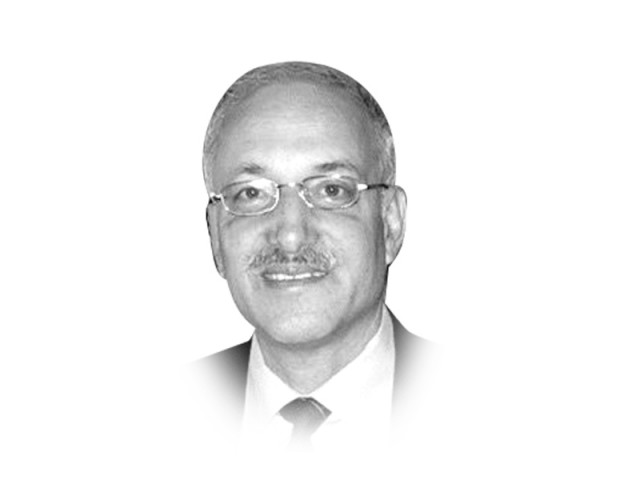The generosity of Bangladesh
The mere fact that they had bestowed an honour upon me for merely following my conscience went beyond hospitality.

tariq.rahman@tribune.com.pk
In Dhaka, I came across a number of people, who had come to be honoured in this seventh phase of this programme to recognise heads of states, politicians, philosophers, musicians, writers, intellectuals, eminent citizens and organisations that had been supportive of the Bangladeshi cause in 1971. From Pakistan, I knew of Ahmed Saleem who had even suffered in this cause and had been honoured earlier. I also knew that Faiz Ahmad Faiz had been given the award with his daughter Saleema Hashmi having gone to receive it on his behalf last year. Also, Hamid Mir and Asma Jahangir had been here to receive the awards of their fathers. This time, too, there was Asfandyar Wali Khan, head of the ANP, to receive the awards being given to Khan Abdul Ghaffar Khan and Wali Khan. Master Khan Gul, vice-chairman of the All Pakistan Awami League, was represented by his son, Professor Zafar Iqbal. There might be others in the past from Pakistan but I do not know about them.
I was feeling humbled as I kept reading what these people had done. They all appeared to be people of such character and action that I was a bit dismayed. And then, for the first time, I read my citation during the ceremony just before going to receive the honour from the dignitaries. Among other things it read: “and earned the wrath of the Military Junta”. This was obviously an assumption since I had never made such a claim in my several writings about 1971, including a small paragraph on myself, which I had sent to the Bangladesh High Commission a few days earlier. Later that evening, I met the gentleman who had actually written this citation and, as I had guessed, it was an assumption but one in good faith. After all, it is rather difficult to imagine that a second lieutenant in the armoured corps of the Pakistan Army had condemned the military action, claimed that he was a conscientious objector to the 1971 War no matter where it was being fought and even expressed the opinion that Pakistan should have simply walked out of Bengal like the British had walked out of India as the majority had voted for their own rule. I had been appalled by the stories I had heard of atrocities and my view was that the situation called for nothing but heeding the will of the people without any fighting. I remember talking about this to my commanding officer, Lt Colonel Ali Gohar, then Colonel (later Lt General) Kullue and even arguing about this unjust war with Lt General KM Arif. So it was not that I ever concealed my views but the point is that at the organisational level, nobody took notice of my very eccentric views. I suppose they thought me too naive and inexperienced to be taken seriously (‘too much of an idiot’ in subaltern parlance). At the individual level, there were people who passed unsavoury remarks and some individuals were less than charitable but on the whole, I was treated with decency by the army. Indeed, my own father was far less charitable in his views about my attitude towards Bengali liberation but he considered me brainwashed. When I pointed out to him that I had no Bengali friends and nobody else I knew ever expressed such views, he was nonplussed but maintained that there was ‘some crookedness in my mind’ (dimagh mein terh hai). Having decided that I could not be a proper soldier since I would consult my conscience before every war, I first decided to escape to the Army Education Corps but, having realised that there, too, one has to motivate people for war, I finally resigned my commission. So, had there been no 1971, I would not have changed my career. As I was fond of cantonment life and it is privileged in Pakistan, this might be considered something of a sacrifice. But surely, it is nothing compared with people who had gone to jail, had family members killed, helped people as doctors in camps and evacuated Bengalis in great danger. Before such distinguished company, I really felt very humble but also grateful that the little I had done had been recognised as the voice of my conscience.
After leaving the army, I wrote short stories based upon the horrors I had heard about and my sympathy, as always, was with the oppressed people of Bangladesh. I also appealed to the Pakistani government to apologise to the people of Bangladesh for the military action and the atrocities committed from March till November 1971. But, of course, I added that in my view, the Bangladeshi government, too, should offer apologies to those Biharis and families of West Pakistanis who were killed before the military action and once the surrender took place. But since the government at that time was Pakistani, the first apology should come from this country. Moreover, there is no comparison of the scale. The number of Bengalis killed, tortured, raped and burnt was so much more than the others killed that even asking for the second apology makes people angry in Bangladesh even now.
During the entire trip, the warmth and hospitality of the people of Bangladesh was overwhelming. The mere fact that they had bestowed an honour upon me for merely following my conscience went beyond hospitality. It was generosity itself.
Published in The Express Tribune, October 14th, 2013.
Like Opinion & Editorial on Facebook, follow @ETOpEd on Twitter to receive all updates on all our daily pieces.















COMMENTS
Comments are moderated and generally will be posted if they are on-topic and not abusive.
For more information, please see our Comments FAQ